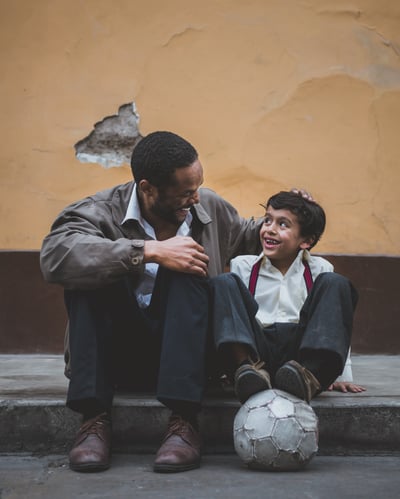 Sometimes, investing time sitting quietly, can be perceived as self-indulgent navel-gazing. Here I present nine reasons why mindfulness is the best thing you can do to help others.
Sometimes, investing time sitting quietly, can be perceived as self-indulgent navel-gazing. Here I present nine reasons why mindfulness is the best thing you can do to help others.
One: Meditation helps slow down your reactivity between stimulus and response, thus enabling you to carefully choose your response to, say, critical comments or back-talking teenagers.
Two: Self-compassion leads to compassion for others. We cannot give to others what we don’t know how to give to ourselves.
Three: Mindful awareness of our emotions increases our emotional intelligence, allowing us to connect more appropriately to others’ needs and challenges.
Four: Mindfulness teaches you to pay attention to the present moment and helps to alleviate the unnecessary anxiety we feel about the future and the similarly unnecessary remorse or guilt we may feel about the past.
Five: Meditation teaches us to pay attention to details in the present moment, which we might otherwise miss. For example, when we are driving, we will notice that the pedestrian crossing in front of us is distracted by his phone and we will be more careful before we proceed through the light.
Six: Meditation teaches us to stay calm under duress. This calmness might be lifesaving in moments of crisis as we choose the correct course of action to take.
Seven: Mindfulness helps us be more aware of how much our ego converts everything to its own use. Even our attempts at humility can devolve into food for the ego (i.e. “I’m the most humble person here”). With awareness, we can keep the ego in check.
Eight: People who meditate report being happier than people who don’t, and happiness through mindfulness (as opposed to happiness by buying more things or controlling others) is good for society.
Nine: Taking time out of your day to pay attention to yourself can be the best thing you can do for others. It’s not selfish to eat healthy food or get exercise. Neither is it selfish to take ten to thirty minutes to sit quietly and become aware of your thoughts.
Ultimately, the work you do in mindfulness is about being a better, kinder, more compassionate and caring you. That’s the you the world needs in order to be a more peaceful place. There’s nothing selfish about that.
Questions for your meditation practice:
- For whom are you practicing mediation?
- What benefits in your life and in the lives of others do you hope to achieve through your meditation?
- Do you give yourself permission to be quiet and still before you begin practice?
--
This post is a short excerpt from Edie Raphael's The Art of Being Present: Mindfulness Meditation for Work and Life. The full book (including 52 weeks of guided meditations) can be purchased here.
Credit: Photo by Sebastian Leon Prado on Unsplash




